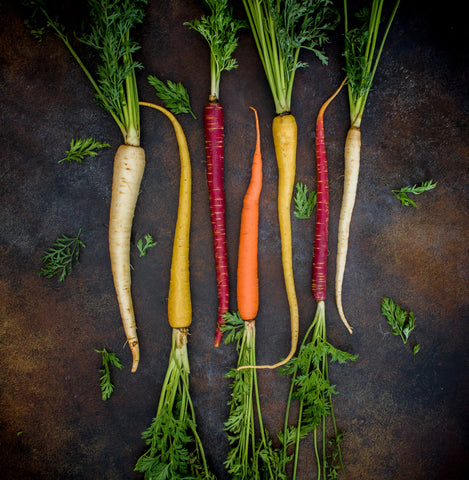Do sugar and dairy affect acne?
Heavily processed industrial foods, including milk and sugar, are linked to acne.
Is dairy inflammatory? The short answer is yes. The majority of the cow's milk in the world are produced using industrial methods. This means that cows have to lactate for 10 months of the year. They are artificially inseminated and give birth to one calf yearly, because only lactating cows produce milk. They are often fed antibiotics and industrially produced meals, and kept in crammed spaces. The quality of the milk we drink depends on the quality of all the above factors.
Grass-fed cows produce higher quality milk and would be considered a better option. But all cows pass on some of their growth hormones through the milk. With acne linked to so many types of hormones (not just androgens), milk is often an issue with acne sufferers.
However, not all dairy seem to have the same effect on acne. Yogurt for example could be an exception. A good quality yogurt can improve the gut microflora and indirectly, the skin. Choose plain yogurts with live probiotics (avoid with added flavours).

Is sugar inflammatory? The short answer is yes. And there are different types of 'sugar'. The grand majority of sugar we consume today is highly refined, which includes simple carbohydrates like white bread or white pasta. The refined white sugar and the high fructose corn syrup used in processed food, are highly inflammatory.
Simple carbs are also sugar because they quickly transform into glucose after consumption. Pasta and bread can shoot up the glycemic index (GI) level. But GI can be lowered by combining refined staple foods like pasta and bread with vegetables, proteins and healthy fats.
Instead of a breakfast of toasts and jam, try avocado and eggs.
Why is sugar a problem for acne? Because high GI food can increase the hormones that trigger production of more sebum. Also because high GI food leads to higher insulin production, and a sustained high level of insulin can lead to inflammation.
What foods to eat if you have acne?

Anti-inflammatory foods like plant-based are the best. Food rich in antioxidants are also important. Try to obtain the nutrients from whole foods. An ascorbic acid (synthetic vitamin C) is not the same as a fruit that contains vitamin C. An orange contains vitamin C and also many other nutrients, antioxidants and fibre that aid digestion and absorption.
To balance hormones, it is important to eat good fats, some protein and a variety of fibre. Among foods that are great for hormones, you can find avocados, cruciferous vegetables (cabbage, broccoli, broccoli sprouts, etc), wild salmon, and virgin olive oil, among others.
Why is diet so important in targeting acne?
Without food, we die. Without food, the cells in our bodies stop functioning because the energy required to renew, reproduce and repair dries up. The energy for our cells come from the nutrients in our food. Foods that have little or no nutritional value are inflammatory which then can lead to several health issues, including acne.
The anti-inflammatory and antioxidant foods give our cells the ammunitions to do their job. In other words, they feed our organism the nutrients needed for normal cell functioning. Nutrients are important and the alternative, the lack of nutrients, can lead to health problems.
Diet alone may not cure acne. How and why we get acne also depend on a person's genetics, health condition, gut health, habits, environmental factors, and more. This is why cutting dairy may improve acne on some people but not on others. But diet is the foundation where every cell in our body is built from. The wrong diet can lead to inflammation, and inflammation can lead to acne and other health problems.

